HS-ESS1-6
Apply scientific reasoning and evidence from ancient Earth materials, meteorites, and other planetary surfaces to construct an account of Earth's formation and early history.
-
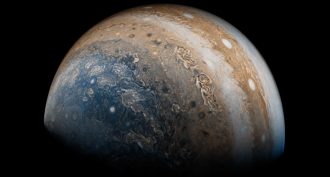 Planets
PlanetsJupiter gets surprisingly complex new portrait
NASA’s Juno spacecraft has sent back unexpected details about Jupiter, giving scientists their first close-up of this gas giant.
-
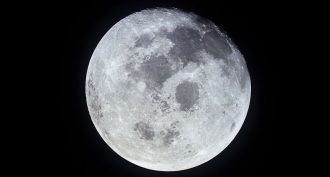 Planets
PlanetsHow Earth got its moon
How did our moon form? Scientists are still debating the answer. It may be the result of some one big impact with Earth — or perhaps many small ones.
-
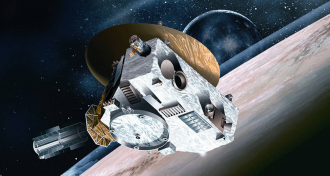 Space
SpaceCool Jobs: Probing Pluto
The New Horizons mission captivated the world as it flew by Pluto. Here are some of the people who made that possible.
By Ron Cowen -
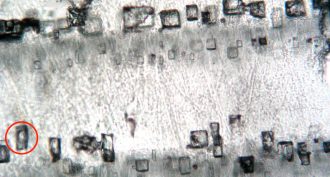 Earth
EarthOxygen-rich air emerged super early, new data show
Scientists had thought animals were slow to emerge because they would have needed oxygen-rich air to breathe. A new study finds that plentiful oxygen may have developed early. So animals may have been late on the scene for another reason.
-
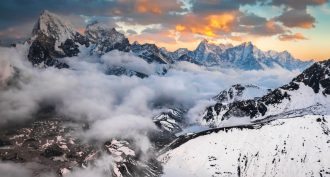 Earth
EarthCool Jobs: Mapping the unknown
Scientists find different ways of exploring places humans will never visit — and drawing maps to help us better understand such mysterious places.
By Ilima Loomis -
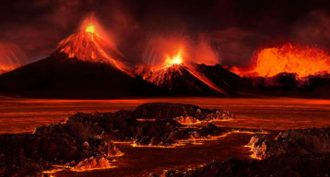 Fossils
FossilsClues to the Great Dying
Millions of years ago, nearly all life on Earth vanished. Scientists are now starting to figure out what happened.
By Beth Geiger -
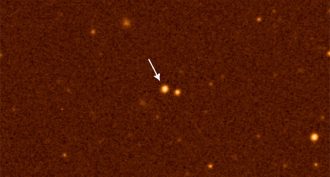 Space
SpacePollution may give ‘first’ stars a youthful look
The oldest stars should be made of only light elements. But these suns may have sucked up heavier elements, giving them a more youthful appearance, a new study finds.
-
 Planets
PlanetsPluto hosts ice mountains, data suggest
Geologic activity appears to have been reshaping Pluto, erasing craters and more.
-
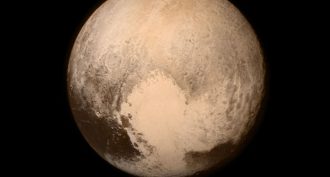 Planets
PlanetsPicture This: Pluto hearts us
As a little spacecraft flies by Pluto, it is snapping up high resolution images and collecting unparalleled data.
-
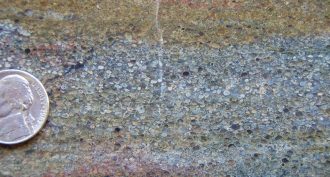 Planets
PlanetsAsteroids boiled young Earth’s oceans
At least two asteroids hit Earth 3.3 billion years ago. This superheated the atmosphere, boiled the oceans and shaped how early life evolved.
-
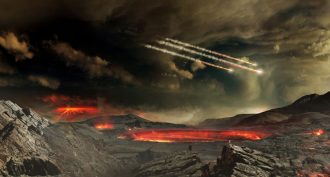 Chemistry
ChemistryCooking up life for the first time
The basic components for life could have emerged together nearly 4 billion years ago on the surface of Earth, chemists report.
By Beth Mole -
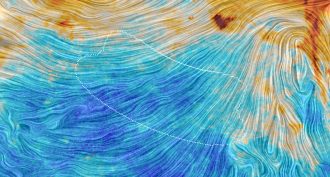 Space
SpaceDust erases evidence of primordial gravity waves
In March 2014, scientists claimed to have found the first echoes of the Big Bang — ripples in the very fabric of space. A new analysis shows the experts were mistaken. Dust appears to explain the confusion.
By Andrew Grant